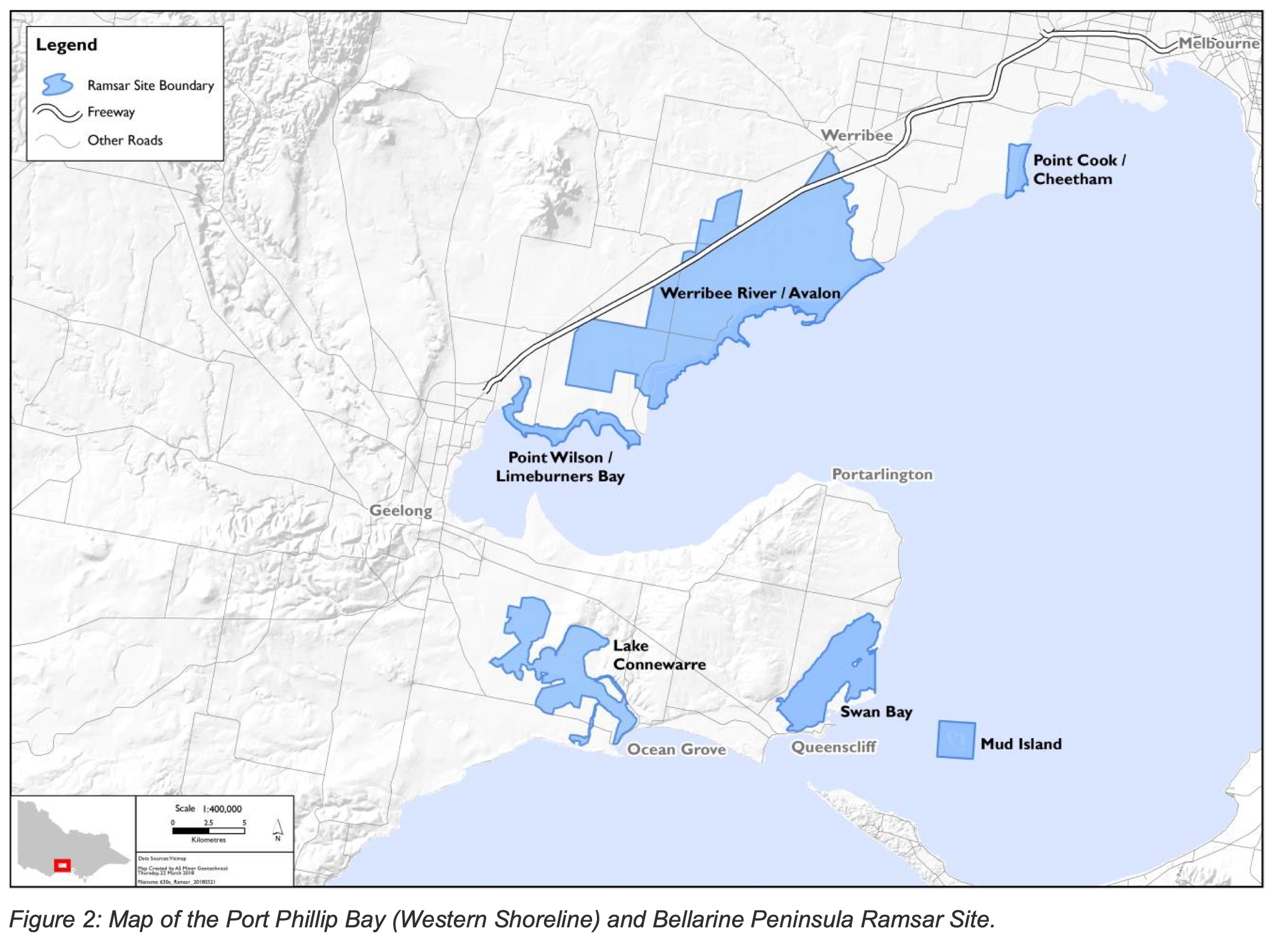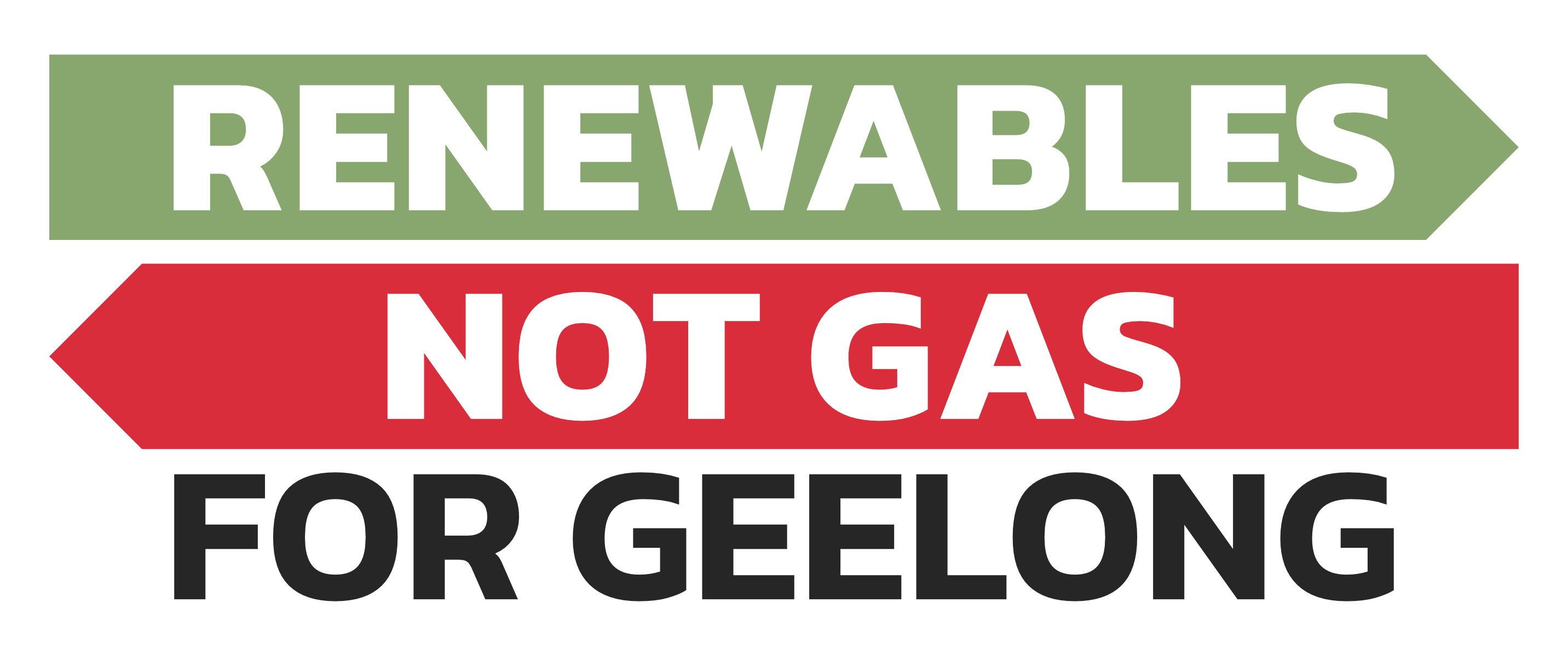Environmental Damage
The proposed terminal requires dredging of the bay and releasing chlorinated water – while sitting adjacent to internationally recognised Ramsar Wetlands
What are the local environmental impacts?
There are real concerns around local impacts like dredging the Bay, disturbing toxic sediments, and the impact of chlorine on the seagrasses and habitat and nearby internationally recognised Ramsar Wetlands. The Victorian government rejected AGL’s proposal for a similar gas import terminal at Crib Point in Westernport Bay because the release of chlorinated water posed “unacceptable risks” to the marine environment.
Viva Energy has argued their gas terminal would reuse this chlorinated water in the refinery process, before releasing it back into the Bay.
02
Adjacent Ramsar sites
The proposal sits adjacent to critically important Ramsar wetlands.
"Listing a wetland as a Ramsar site carries with it certain obligations, including managing the site to maintain its ‘ecological character’ and to have procedures in place to detect if any threats are likely to, or have altered ‘ecological character’. Definitions for “ecological character” and “change in ecological character” are as follows (Ramsar Convention 2005):
“Ecological character is the combination of the ecosystem components, processes and benefits/services [CPS] that characterise the wetlands at a given point in time” and
“...change in ecological character is the human induced adverse alteration of any ecosystem component, process and or ecosystem benefit/service.”

Key Impacts
The LNG import terminal proposal is damaging across many areas of our environment, community and climate.
